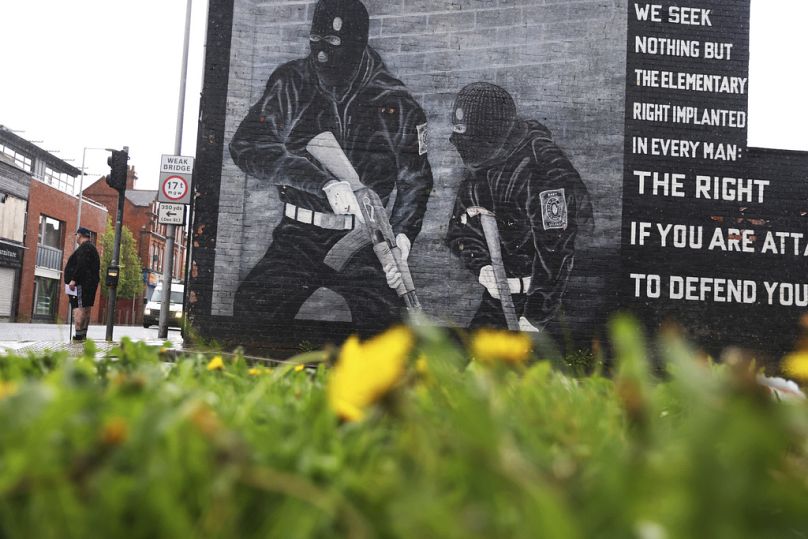The very fact that these walls exist is living proof that when it comes to the full implementation of the 1998 Peace Agreement, there’s still plenty of more work to be done.
Joe O’Donnell walks along a specially constructed peace wall in Belfast that still separates working-class British Protestants from neighbouring Irish Catholics.
 ADVERTISEMENT
ADVERTISEMENT
 ADVERTISEMENT
ADVERTISEMENT
He is the strategic director of the Belfast Interface Project which works to regenerate the frontier land between the two communities. And he told Euronews that while the 1998 Good Friday Agreement brought peace, it had not eased tensions.
"I don’t think anybody would say that the peace process 25 years on, has delivered in its entirety," he said.
"It probably hasn’t delivered as much as people would have hoped for or expected after 25 years.”
Frustrations remain
More than 3,700 people died in the Northern Ireland conflict between 1969 and 1998 with more than 47,000 people injured.
The Good Friday Agreement, struck on April 10, 1998, after almost two years of US-backed talks, committed armed groups to stop fighting, ended direct British rule and set up a Northern Ireland legislature and government with power shared between unionist and nationalist parties.
Even for the generation born in 1998, who did not experience the daily violence, some have told Euronews that the Peace Agreement was still not delivering what it promised.
“I feel it’s definitely delivered a bit, but there’s definitely more work that could be done,” one young woman said.
“We have relative peace and I feel very privileged to experience that," a young man added.
"If I listen to my parents, they talk about very terrible times. Obviously, the political process is another question.”
A model of conflict resolution
The Northern Ireland Parliament is currently not sitting after the fallout from Brexit. Unionists argue they have been isolated from Great Britain.
Experienced observers have told Euronews that while the Agreement delivered some progress between the two divided communities, it remains one of the most respected models of conflict resolution in the entire World.
"Many nationalists and many unionists find there are things in the Good Friday Agreement they don’t particularly like," Queen's University Belfast professor Richard English said.
"But viewed from other conflicts, other parts of the World, the achievements of substantial peace in what seemed like an intractable conflict, in what seemed like one of those conflicts that simply would not end, is a remarkable achievement.”
There are more 100 peace walls in Belfast, separating pro-Irish Catholics from pro-British Protestants.
The fact that these walls exist is living proof that when it comes to the full implementation of the 1998 Peace Agreement, there’s still more work to be done.











